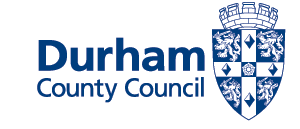Kinship care
Kinship care is when a child lives full-time or most of the time with a relative or friend because they are unable to live with their parents, usually because their parents are unable to provide them with care and support.
That relative or friend is called a 'kinship carer' and it is estimated that around half of kinship carers are grandparents and also include older siblings, aunts, uncles, as well as family friends and neighbours.
There are different types of kinship care which includes children who may be:
- living in an informal arrangement by their parents
- 'looked after' by the council and placed with kinship foster carers
- on a Special Guardianship Order or Child Arrangement Order (formerly Residence Order)
Kinship carers
Kinship carers play a crucial role in County Durham providing a safe, loving and familiar home for children which allows children to remain living with their wider families, often within their local communities and helps keep families together.
One of our Kinship families has kindly agreed to share their story. Christina Wilson is Kinship carer to her four grandsons, following her son Craig's former battle with drug and alcohol addiction. The family now work together to raise awareness of Kinship, the support available and break down the barriers and stigma around addiction.
Watch Craig's story below.
Craig's Story video transcript (PDF, 61 KB)
If you are a kinship carer and need practical help, advice, support or simply someone to talk to, please Contact Kinship care and support.
Support we provide
We offer advice, support and information to kinship carers and their families, including:
- financial support and advice on a huge range of matters including benefits, debt management, free school meals, Pupil Premium Plus, transport provision, energy saving schemes and additional funding initiatives
- emotional and mental health support, including access to therapeutic support for both children and their kinship carers and a telephone support line
- signposting to services across the council, voluntary and community sector services, local and national charities, external agencies and peer support groups
General family support and information
- Family Hubs Our Family Hubs support all families from pregnancy right up until your child turns 19, or 25 if they have special educational needs and disabilities. The Family Hubs team includes people from the council, NHS, community organisations and more. We can support you with everything to do with family life, we're here to make a positive difference for all families.
Support for families of children and young people with Special Educational Needs and/or Disabilities (SEND)
- Durham Local Offer provides information, advice and support for families of children and young people with SEND).
- Short breaks (respite care) give parents/carers of children with SEND to have some 'time out' from their caring role.
- Durham Special Educational Needs and Disability (SEND) Information Advice and Support Service (SENDIASS) supports parents/carers of children with SEND
Support for mental health
- Our mental health support pages include information and links to a range of organisations both locally and nationally who can offer mental health support. We have a page for Mental health support for children, young people and families and a page for Mental health support for adults.
- The Full Circle is a specialist therapeutic service that helps children and young people who have complex backgrounds and have had negative childhood experiences to achieve their full potential.
Support with education, employment or training
- DurhamWorks helps young people aged 16 to 24 into work, training, or volunteering.
- Durham Virtual School promotes the educational achievement of looked after and previously looked after children. It supports schools and education settings so that they can support looked after and previously looked after children to enjoy, engage and achieve good outcomes in the schools they attend.
- Home to school travel assistance - children who are looked after or formerly looked after may be eligible for free transport to their school in accordance with the statutory distance criteria.
Support with your finances
- Help with your money provides lots of useful links to help you manage your finances and access financial support.
- Welfare Rights have a dedicated team to support kinship carers to make sure they access all the benefits they are entitled to.
- Fun and food offers free activities with healthy food during the school holidays to eligible families.
Support with housing
Housing information if you are experiencing difficulties with accommodation, have a general housing query as a tenant, owner or landlord or who may be potentially homeless or threatened with homelessness.
Training
Attending training courses can help to increase your confidence and support you through the unique challenges you meet in your role as kinship carer. It also allows you to meet other kinship carers, share ideas and experiences and learn from each other. Training may be delivered online, through elearning (narrated presentations) or by more traditional face-to-face classroom sessions. Courses include: Online Safety for Carers, Life Story, Neglect Training, First Aid - Infant and Child, Safeguarding Children, Positive Techniques for Behaviour Management (Pre-Teen), Understanding Teenagers, Promoting Contact, LGBT Awareness, and Drug, Alcohol and Substance Misuse Awareness.
Contact your social worker or the Kinship Care and Support Team to find out more.
Useful links
- Kinship - the kinship care charity can provide advice and help you work through problems to find the best way forward. They help carers connect with other carers, both in their national community and through their network of local support groups.
- First Contact can refer you to services that can help if you have a concern about a child's welfare or need some extra help and support with the child you are looking after
- Humankind support family members and friends of people who use drugs or alcohol and run coffee mornings in Durham, Bishop Auckland and Consett.
- County Durham Families Information Service (FIS) a free and impartial information service that signposts families with children and young people to assistance with aspects of family life, including accessing childcare.
- Area Action Partnerships offer advice and support on local projects, services and activities that are available to County Durham residents.
Other useful links
- Age UK County Durham
- Carers
- Citizens Advice County Durham
- UNISON - Durham Branch offers confidential support and advice around financial assistance, debt advice and wellbeing breaks to UNISON members
- GMB - Durham Branch offers the GMB Credit Union, cash and benefit support, legal advice, plus much more to GMB members who can log on and use GMB Extra
- NHS: live well offers advice about healthy living, including eating a balanced diet, healthy weight, exercise, quitting smoking and drinking less alcohol.
- Smoke Free County Durham
- Wellbeing for life offers help on how to eat more healthily, lose weight and gain weight, be more active, alcohol and drug awareness, and access services in your local community
- Northumbrian Water could offer a reduction to households with less than £16, 000 income

 Share this page on Facebook
Share this page on Facebook
 Share this page on Twitter
Share this page on Twitter
 Print this page
Print this page





